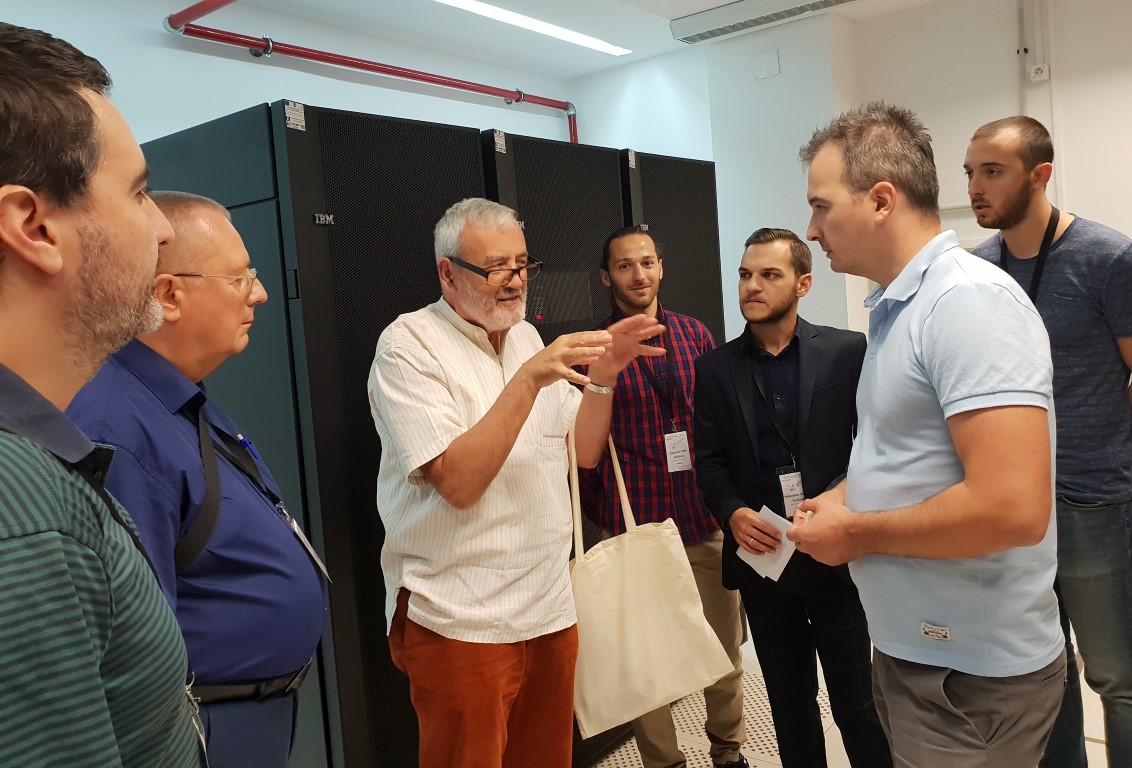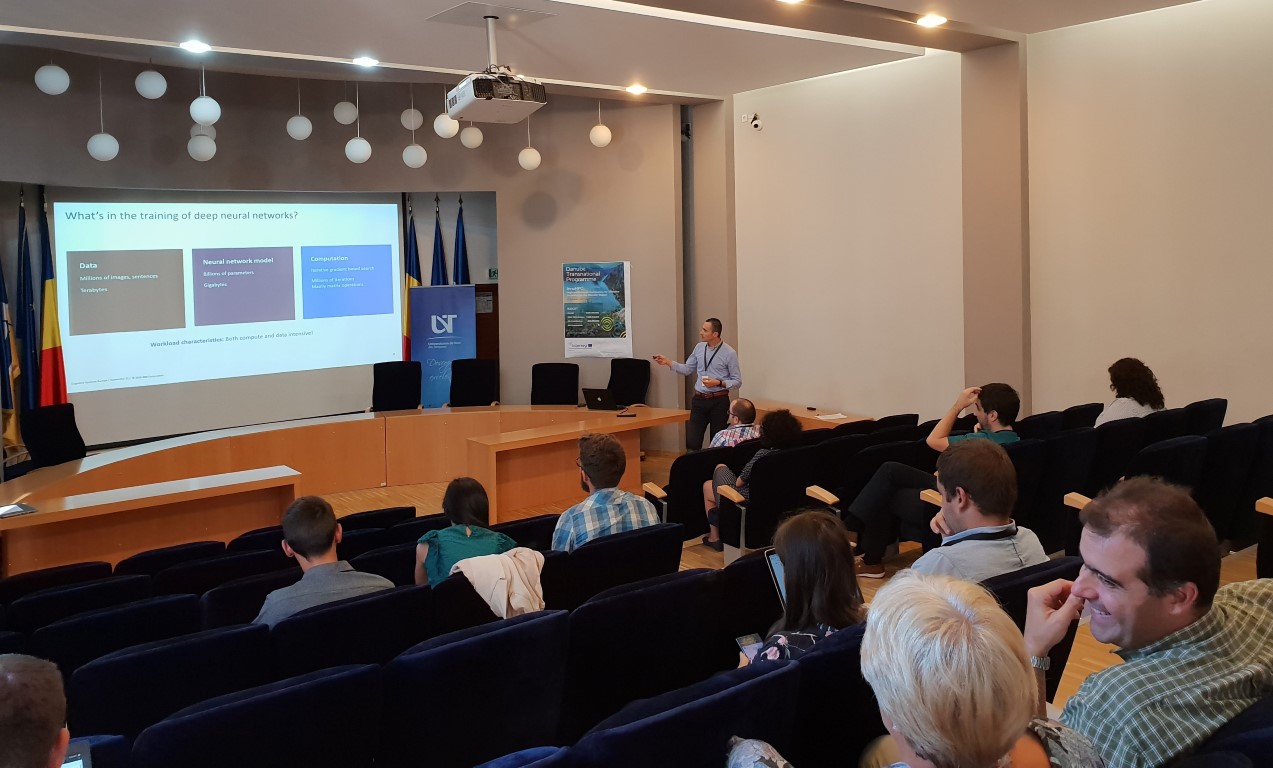InnoHPC - REPORT: 3RD and 4th INNOHPC TRAINING - CAPACITY BUILDING FOR HPC PROVIDERS AND SMES - Romania, September 2018
04-10-2018
InnoHPC training: Capacity building for HPC providers and SMEs took place on 20th and 21th September 2018 in Timisoara, Romania, at West University of Timisoara. There were two paralleled trainings, one for HPC providers and the other for SMEs, both organized in the framework of SYNASC 2018 .
The main objective of this InnoHPC training was to improve the transnational HPC access in the framework of testing the materials which was done through WP4, InnoHPC laboratory, in terms of co-designing knowledge-intensive innovative products with high value-added in transnational value-chains. Key outputs were transnational InnoHPC Lab pooling regional HPC infrastructure and competencies, web platform providing HPC access, integrated services and capacity building tools, and sustainability toolkit, to support durability of InnoHPC Lab beyond the project.
This InnoHPC activity developed a part of relevant tools of InnoHPC Lab.
- HPC capacity building tools and programs for HPC providers focused on usage of HPC technology to solve problems of SMEs active in electronic and automotive industries, particularly in development and testing new products or production methods in the framework of transnational industrial value-chains, on researchers competencies translating business problems to scientific language and to develop entrepreneurial spirit of researchers.
- HPC capacity building tools and programs for SMEs from electronic and automotive industry developed skills of entrepreneurs from SMEs to communicate their problems to researchers in academia, build their understanding of HPC and its possible applications, build intercultural competencies required to co-operate in the framework of transnational value chains and also train their researchers to use HPC skills.
Also, the speakers and the participants debated the topic of digital industry transformation, technology transfers process and intellectual property in Romania, focusing on high performance computing capacities and potential.
The following elements were underlined:
- strengths: the emergence of professional associations in the field – ex. ARCAS; the existence of IT clusters; availability of HPC infrastructure in universities; good level of IT knowledge
- weaknesses: the legislation does not allow universities to use public infrastructure to offer services for companies (it is not allowed to have revenues if the infrastructure was bought with public money); low presence of industry in professional associations; low salaries of the personnel working in HPC centers; fluctuations of staff; lack of coordination to initiate dialogue with companies
- opportunities: entering European networks to develop new projects and to increase knowledge; accessing structural funds for infrastructures
- threats: brain drain; existing infrastructure becomes obsolete; lack of interest from companies in cooperating with research environment; reluctance for cooperation
Industry representatives presented their experience at industrial session, some key aspects being related to successful cooperation projects with research and lessons learnt from these. They highlighted the importance of a transparent and clear dialogue between research and industry because both have to understand the needs and the capacities of the other, but also to solve their needs and to obtain profit/ fulfil their objectives.


The networking session was focused on how collaborations could be developed and on the role of each actor. The main points referred to:
- Stimulating enterprises to approach research institute to solve their problems by explaining them the advantages of such cooperation: expertise, customized solution, good prices, increasing productivity, improving working time etc.
- Making successful projects more visible – the power of the example
- Entering international networks
WORKSHOP CONCLUSIONS & RECOMMENDATIONS RELEVANT FOR MONTENEGRO
Given that in Romania HPC technology is used at the average scale, stakeholders and providers have had an extensive discussion on how this situation can be improved and which approaches should be taken into account in relation with government strategies:
- to solve the legislative issues related to the prohibition to have revenues using public infrastructure: companies which want to benefit from the expertise of HPC specialists working in university or research centres should host their clusters in the HPC centres – this allows HPC specialists to work with companies.
- to bring business and research closer: developing a “bridging” framework in which companies ask for solutions and there are teams of researchers proposing them – the company will choose the solution most adequate for its needs, joint internships, academic HPC EU-projects in joint coordination university-industry
- to attract companies: research should present the acquisition of their services as an investment which will generate profit in time
Follow us on
Official InnoHPc Facebook account
